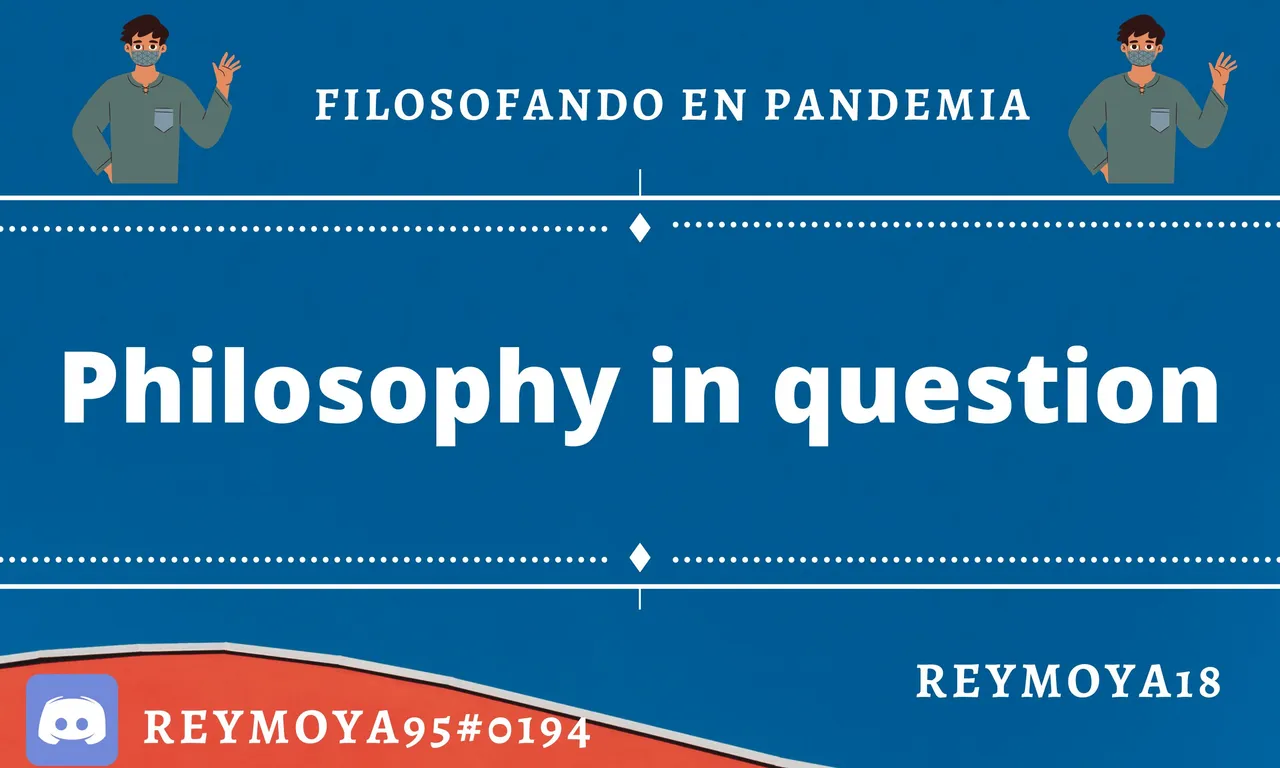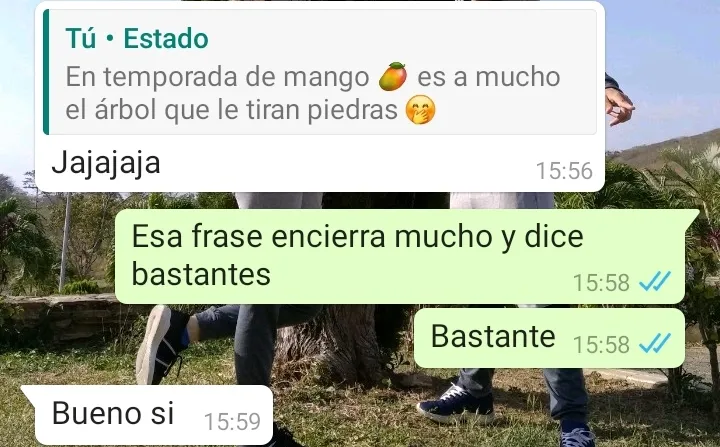
Fuente: Imagen realizada en canva
Hola queridos amigos hoy les traigo una experiencia de mi día a día, y es que días después he podido sacar y expresar en mis redes sociales lo que tenía guardado en mi mente y es que evocando la prudencia no lo podía hacer en ese momento pero nunca es bueno guardarse con nada, por eso es bueno expresarse así sea semanas, o días después.
También me gustaría que cada uno de ustedes pudiera pensar y reflexionar sobre esta frase que dice mucho y que se puede ver de distintas maneras o mejor dicho, interpretar de acuerdo a la situación o realidad que estemos viviendo para el momento lo que si es cierto es que una frase puede generar reacciones y opiniones diversas.
Hello dear friends today I bring you an experience of my day to day, and is that days later I have been able to take out and express in my social networks what I had stored in my mind and is that evoking prudence I could not do it at that time but it is never good to keep yourself with anything, so it is good to express yourself even weeks, or days later.
I would also like that each of you could think and reflect on this phrase that says a lot and that can be seen in different ways or better said, interpreted according to the situation or reality that we are living for the moment what is certain is that a phrase can generate different reactions and opinions.

Fuente: Imagen realizada en Canva
Todos pudieran preguntarse en este punto ¿Cuál es la frase? Pues les comento que viene de un dicho popular solo que ha sufrido algunas transformaciones y un juego de palabras que hacen poder releer para interpretar dicha frase. Algunos me dijeron no entendí, otros en cambio la replicaron en sus estados.
En la filosofía a esta acción se le denomina lógica o filosofía del lenguaje, cuánta riqueza escondida. Sin más preámbulos entonces la frase es así: En temporadas de mangos es a mucho el árbol que le tiran piedras. y aquí usted puede interpretarla y sacarle provecho sin embargo yo haré una descomposición de la misma acompañada de una reflexión personal.
Everyone may wonder at this point, what is the phrase? Well, I will tell you that it comes from a popular saying, but it has undergone some transformations and a play on words that make it possible to reread in order to interpret the phrase. Some people told me I didn't understand it, others replicated it in their states.
In philosophy this action is called logic or philosophy of language, how much hidden wealth. Without further ado then the phrase goes like this: In seasons of mangoes it is to much the tree that they throw stones to him. and here you can interpret it and take advantage of it however I will make a decomposition of the same one accompanied by a personal reflection.

La frase nos habla de una temporada en específica puesto que es allí donde esté fruto se da y en abundancia ya que refleja que es a muchos los árboles. Pasarlo al plural deja a un lado lo individual y lo específico, por tanto, es más incluyente pero al mismo tiempo refleja la pluralidad de nuestra sociedad.
Hay una acción dentro de la frase y es tirar piedras, ahora bien, ¿A quién le tiran piedras? ¿Por qué le tiran piedras? Unos pueden decir que por los frutos y en efecto es así, pero también porque es una planta indefensa, no tiene como defender de las piedras y uno puede preguntarte ¿Por qué tirarle piedra si nos está dando fruto?
The phrase speaks to us of a specific season since it is there where this fruit is given and in abundance since it reflects that it is to many trees. Changing it to the plural leaves aside the individual and the specific, therefore, it is more inclusive but at the same time reflects the plurality of our society.
There is an action within the phrase and it is to throw stones, now, Who do they throw stones at? Why do they throw stones at? Some may say because of the fruits and indeed it is so, but also because it is a defenseless plant, it has no way to defend itself from stones and one may ask why throw stones at it if it is givinig fruit?

Ahora resumamos esto en lo concreto y en la vida de cada uno. Muchos hoy son ese árbol que da fruto, muchos nos encontramos en una temporada abundante para nuestros trabajos, hogar, o lugar donde nos desenvolvemos y allí están los que esperan cada año la tempora para tirar piedras, para dañarte, para dejarte ver sin frutos, así que no te desanimes.
Recuerda bien la frase En temporada de mango es a mucho el árbol que le tiran piedras así que sigue adelante, sigue dando frutos abundantes y sigue dando sombra para cuántos busquen tu sombra que algunos siempre estarán allí esperando que des fruto para lanzar sus piedras.
Now let us summarize this in the concrete and in the life of each one. Many today are that tree that bears fruit, many of us are in an abundant season for our jobs, home, or place where we develop and there are those who wait each year the season to throw stones, to harm you, to let you see no fruit, so do not be discouraged.
Remember well the phrase In mango season is to much the tree that they throw stones so go ahead, keep on giving abundant fruits and keep on giving shade for those who seek your shade, some will always be there waiting for you to give fruit to throw their stones.

Fuente: Imagen realizada en canva
Traducción al Inglés desde Deepl.com
English translation from Deepl.com
